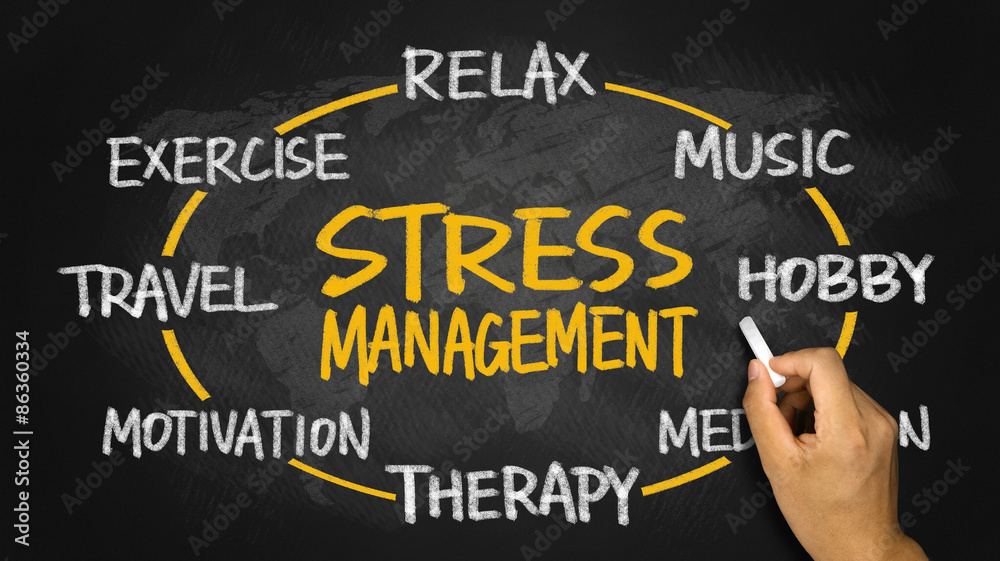In today’s fast-paced world, stress has become an inevitable part of life. Whether it’s work deadlines, personal responsibilities, or unexpected challenges, stress can manifest in various forms and affect our physical, emotional, and mental well-being. However, managing stress effectively is crucial for maintaining a balanced and healthy life. In this blog, we’ll explore some practical stress management techniques and strategies that can help you achieve a sense of equilibrium amidst life’s demands.
Understanding Stress:
Before diving into stress management techniques, it’s essential to understand what stress is and how it affects us. Stress is the body’s natural response to pressure or threats, whether they’re real or perceived. When we encounter a stressful situation, our body releases hormones like adrenaline and cortisol, triggering the “fight or flight” response. While this response is beneficial in certain situations, prolonged exposure to stress can have detrimental effects on our health.

Common Causes of Stress:
Stress can stem from various sources, including work, relationships, financial issues, health problems, and major life changes. Some common causes of stress include:
- Work-related pressure: Tight deadlines, heavy workloads, and job insecurity can contribute to stress in the workplace.
- Personal relationships: Conflict with family members, friends, or partners can lead to emotional distress.
- Financial difficulties: Money worries, debt, and financial instability can cause significant stress.
- Health concerns: Chronic illnesses, injuries, or medical conditions can exacerbate stress levels.
- Major life events: Events such as moving, divorce, bereavement, or starting a new job can be stressful.
Now that we’ve identified some common stressors let’s explore effective strategies for managing stress and achieving a balanced life:

- Mindfulness and Meditation:
Mindfulness and meditation techniques can help calm the mind and reduce stress levels. Practices such as deep breathing exercises, guided imagery, and progressive muscle relaxation can promote relaxation and mental clarity. Allocating just a few minutes each day to mindfulness meditation can make a significant difference in your overall well-being.
- Regular Exercise:
Physical activity is not only essential for maintaining physical health but also plays a crucial role in managing stress. Exercise releases endorphins, neurotransmitters that act as natural mood lifters, and reduce stress hormones like cortisol. Aim for at least 30 minutes of moderate-intensity exercise most days of the week, whether it’s brisk walking, jogging, yoga, or cycling.
- Healthy Lifestyle Choices:
Adopting a healthy lifestyle can help buffer the effects of stress on the body and mind. This includes eating a balanced diet rich in fruits, vegetables, whole grains, and lean proteins, staying hydrated, limiting caffeine and alcohol intake, and getting an adequate amount of sleep each night. Prioritizing self-care activities such as relaxation, hobbies, and leisure time is also essential for reducing stress levels.
- Effective Time Management:
Poor time management can contribute to feelings of overwhelm and stress. Learning to prioritize tasks, set realistic goals, and delegate responsibilities can help you manage your time more effectively and reduce stress. Use tools such as to-do lists, calendars, and time-blocking techniques to organize your schedule and increase productivity.
- Healthy Coping Mechanisms:
Instead of turning to unhealthy coping mechanisms like smoking, excessive drinking, or overeating, seek out healthier alternatives to manage stress. Engage in activities that bring you joy and relaxation, such as spending time in nature, practicing a hobby, listening to music, or spending quality time with loved ones. Surrounding yourself with a strong support network of friends, family, or support groups can also provide invaluable emotional support during challenging times.
- Set Boundaries:
Establishing boundaries is crucial for protecting your mental and emotional well-being. Learn to say no to additional commitments or obligations that may overwhelm you, and don’t be afraid to communicate your needs and limitations to others. Setting boundaries allows you to prioritize self-care and maintain a healthy work-life balance.
- Seek Professional Help:
If stress becomes overwhelming or unmanageable, don’t hesitate to seek professional help. Therapy, counseling, or support groups can provide you with the tools and resources needed to cope with stress effectively. A mental health professional can offer personalized guidance and support tailored to your specific needs and circumstances.

Conclusion:
Managing stress is a journey that requires patience, self-awareness, and a willingness to prioritize your well-being. By incorporating mindfulness practices, regular exercise, healthy lifestyle choices, effective time management, and healthy coping mechanisms into your daily routine, you can reduce stress levels and achieve a greater sense of balance and resilience. Remember that it’s okay to ask for help when needed and to prioritize self-care in your quest for a balanced life free from excessive stress. By taking proactive steps to manage stress, you can enhance your overall quality of life and cultivate greater peace and happiness in the long run.










